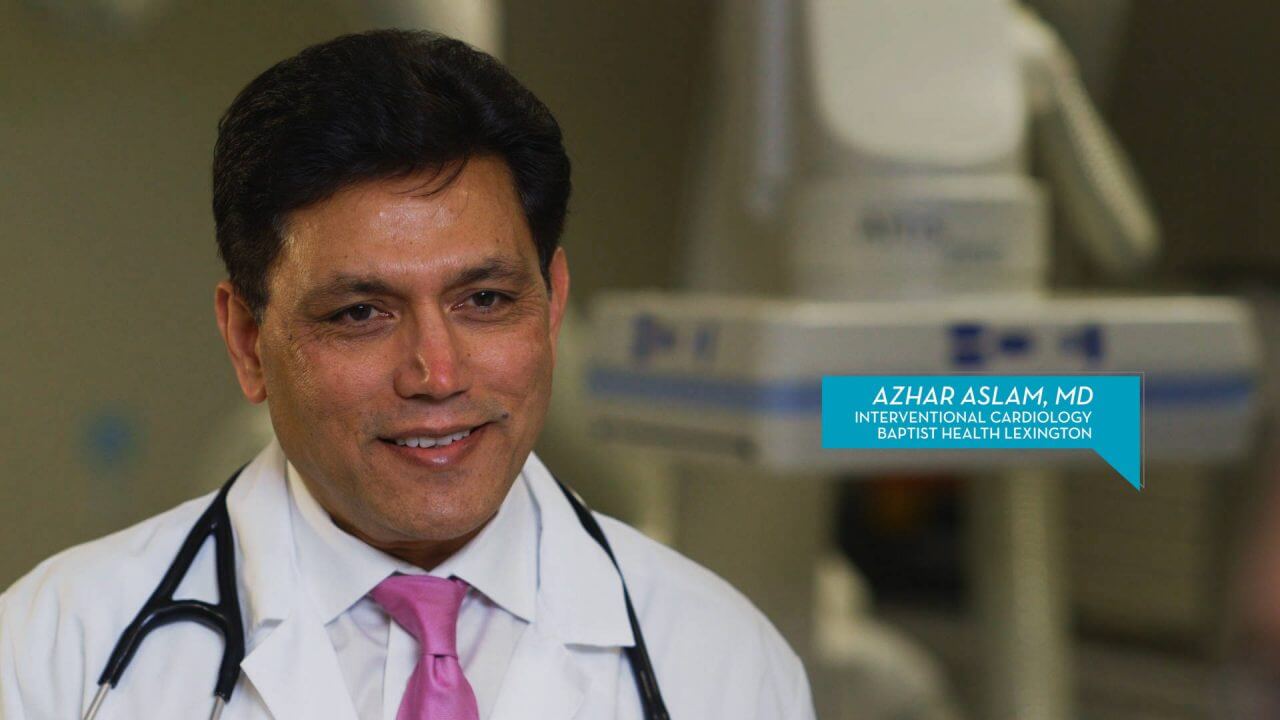Heart Attack Emergency Treatment at Baptist Health
Baptist Health Lexington: Heart Attack Emergency Treatment
Cardiologist Azhar Aslam, MD, outlines heart attack symptoms and describes how emergency responders work with hospital teams to restore blood flow as quickly as possible.
Heart Attack Emergency Treatment Health Talks Transcript
Azhar Aslam, MD, Cardiovascular Diseases
A heart attack is when the circulation to the heart muscle is suddenly cut off, due to a variety of reasons. Most commonly, it is due to the rupture of a coronary plaque, which leads to clot formation. [Patients] can present with symptoms, such as chest pain, shortness of breath, fatigue, sweating, discomfort in their arms, or heartburn. If someone has any of these symptoms, they should suspect that they are having a heart attack.
[With] the treatment of a heart attack in the 21st century, the paradigm shift is that if the heart attack is diagnosed early on, no one should die of a heart attack. Nowadays, our EMS, our emergency medical services, are very highly trained, and they are equipped to recognize the onset of a heart attack on-site. When the EMS is activated, they can perform an EKG, or electrocardiogram, and they can activate the cardiac catheterization lab, where we can place catheters in the coronary arteries to diagnose the blockage. The goal of treatment is to restore blood flow to the heart muscle and stop the heart attack. Here at Baptist Health, we have state-of-the-art facilities available. We have an on-call catheterization laboratory and team, which comprises cardiologists, technicians and nurses 24/7, year-round. The important thing is that the patients get to us on time and prevent irreparable damage to the heart muscle.
Have you ever wondered how healthy your heart is? This quick heart health risk assessment can compare your actual age to your heart’s biological age, as well as calculate your risk of developing cardiovascular disease.



.jpg?rev=5a49c2269ddc4e2db51b4f6d867aa4c0)